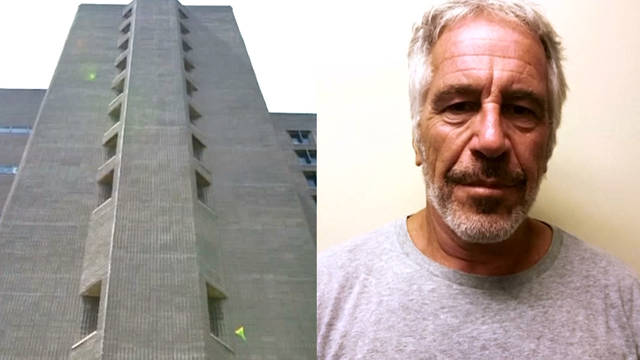Democracy Now!
Questions are mounting surrounding accused serial sex trafficker Jeffrey Epstein’s alleged suicide in his New York jail cell over the weekend. Epstein was found dead in his jail cell on Saturday morning at the Metropolitan Correctional Center, or MCC, in Manhattan, where authorities say he hanged himself. The warden at MCC has since been reassigned, and two guards who were tasked with monitoring Epstein were put on leave. Reports emerged Tuesday that the guards may have been asleep during their shift, failing to check on Epstein for hours and then falsifying time logs. MCC, which has housed many high-profile prisoners, has been plagued with reports of understaffing, overcrowding and dire conditions for years. Mexican drug lord Joaquín “El Chapo” Guzmán called the prison “psychological torture.” A United Nations human rights expert as well as Amnesty International have also condemned conditions in parts of the jail, saying they are akin to torture and result in “cruel, inhuman or degrading treatment.” We speak with Jeanne Theoharis, a professor of political science at Brooklyn College who has written extensively on the Metropolitan Correctional Center. Her latest book is titled “A More Beautiful and Terrible History: The Uses and Misuses of Civil Rights History.”

